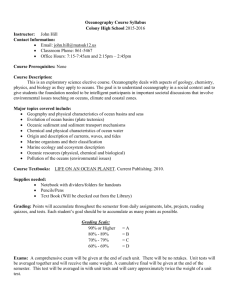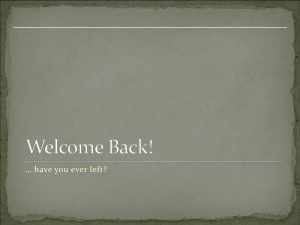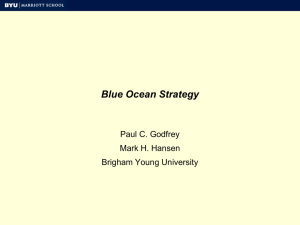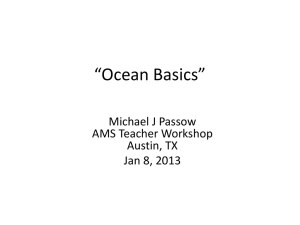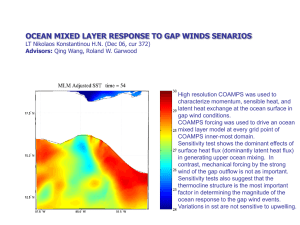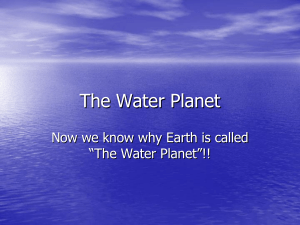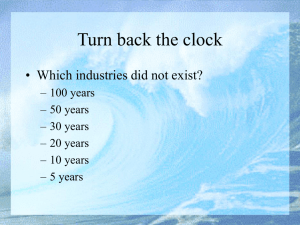Understanding Oceans questions
advertisement
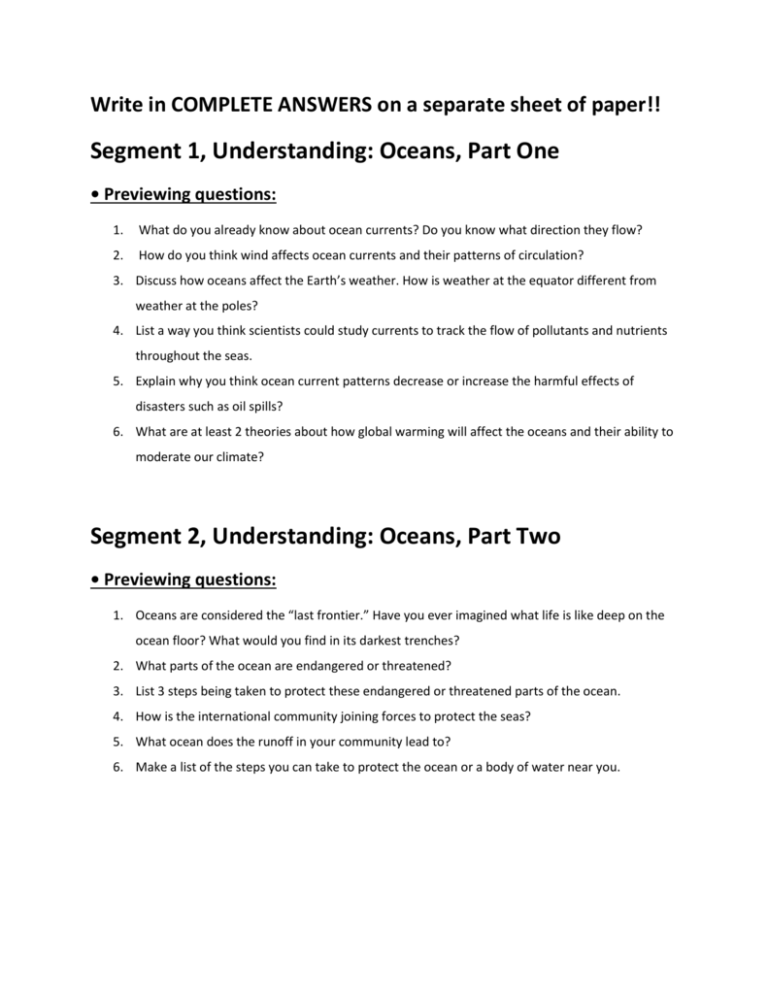
Write in COMPLETE ANSWERS on a separate sheet of paper!! Segment 1, Understanding: Oceans, Part One • Previewing questions: 1. What do you already know about ocean currents? Do you know what direction they flow? 2. How do you think wind affects ocean currents and their patterns of circulation? 3. Discuss how oceans affect the Earth’s weather. How is weather at the equator different from weather at the poles? 4. List a way you think scientists could study currents to track the flow of pollutants and nutrients throughout the seas. 5. Explain why you think ocean current patterns decrease or increase the harmful effects of disasters such as oil spills? 6. What are at least 2 theories about how global warming will affect the oceans and their ability to moderate our climate? Segment 2, Understanding: Oceans, Part Two • Previewing questions: 1. Oceans are considered the “last frontier.” Have you ever imagined what life is like deep on the ocean floor? What would you find in its darkest trenches? 2. What parts of the ocean are endangered or threatened? 3. List 3 steps being taken to protect these endangered or threatened parts of the ocean. 4. How is the international community joining forces to protect the seas? 5. What ocean does the runoff in your community lead to? 6. Make a list of the steps you can take to protect the ocean or a body of water near you. Discussion Questions: Each table has the matching number and be ready to discuss with the class. 1. Explain why the oceans affect Earth’s weather. Consider the weather at the equator in comparison to the weather at the poles. How do the oceans affect the weather in your immediate community? 2. How do oceans deal with the large amount of carbon dioxide produced by humans? 3. What are at least 3 ideas that scientists have about the ways global warming will affect the oceans? 4. Should shoreline communities be taking any actions regarding global warming? 5. Discuss why it is important to study ocean currents. Include in your discussion ways that plants, animals, and humans use ocean currents. Are there historical events that were shaped by ocean currents? Are there present-day events that have been impacted by ocean currents? 6. All the water on land eventually reaches the ocean. Discuss how the area you live in impacts the environmental quality of the ocean. Can you describe areas that might add toxic material to the ocean? Are there ways in which your community works to protect the ocean? 7. Debate whether more money should be spent to explore space or to explore the ocean floor. 8. The United Nations has established the Law of the Sea. Discuss how this policy supports the idea why the ocean should remain sustainable for the society, culture, and environment of a particular area. Why is this important and matters to some and not all people? Do you care? Extra Credit due by Friday, 5/12/13: • Activity: Write a poem about the ocean. Focus on the concept of carbon dioxide and its effects on the ocean, conservation of water, preservation or protection and how you can teach others to help keep the ocean, our Great Lakes and our Swartz Creek sustainable for our society, culture and environment.
